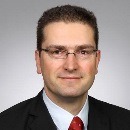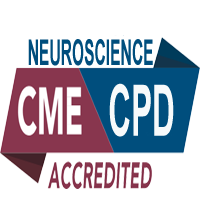
Martin Kronenbuerger
Johns Hopkins University, USA
Title: Cognitive effects of deep brain stimulation for essential tremor: evaluation at 1 and 6 years.
Biography
Biography: Martin Kronenbuerger
Abstract
Essential tremor (ET) is a very prevalent tremor disorder. Tremor in ET is due to an over activity of cerebello-thalamic-cortical tracts. Newer evidence point to the existence of non-motor symptoms in ET such as neuropsychological deficits, related to a disturbance of the cerebello-thalamic/cortical tracts. There are no formal studies on the effects of drug treatment on neuropsychological performance in ET, and little is known about Deep Brain Stimulation (DBS) on neuropsychological deficits in ET. We systematically assessed the effects of DBS on neuropsychological functioning in ET patients. We examined nine ET patients before surgery (PRE-SURGERY), and 1 and 6 years thereafter with DBS switched on (DBS-ON) and off (DBS-OFF). Standardized neuropsychological tests and reaction time tests were applied. There were no differences in tasks of verbal fluency, memory, and executive and intellectual functions comparing PRE-SURGERY, DBS-ON, and DBS-OFF at 1 and 6 years post-surgery. Lesions caused by DBS electrode implantation led to an increase in simple reaction time, while the actual electrical stimulation restored impaired reaction time. Neither stereotactic surgery nor electrical stimulation affected higher cognitive processes in patients with ET in the short or long term. This study proposes that cerebello- thalamo-cortical pathways in humans are involved in tasks of simple reaction time.

